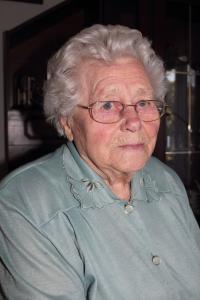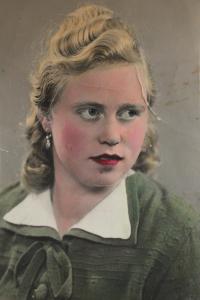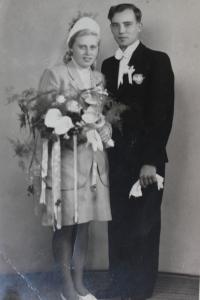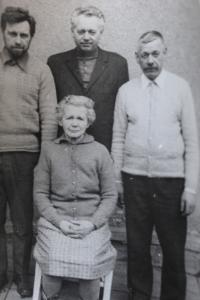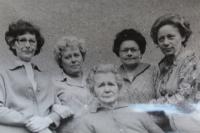The old and the young were closer to each other in the past

Download image
Ludmila Kalousová, née Hynková, was born on 27 April 1923 in the village of Česká Rybná near Žamberk. She had six siblings. Her father managed a cement factory, which had Jewish owners. From the age of fifteen, Ludmila worked in Prague as a housemaid in the family of the director of the National Museum. Then she worked in a family of Jewish businessmen from Náchod; she was forced to leave in 1940. During the war she and her sister worked at a joiner’s shop. In 1945 Česká Rybná was liberated by the Red Army, and Ludmila experienced several conflicts with the soldiers. After the war she and her husband moved to Králíky, where they lived in a house belonging to deported Germans. In 1953 they lost all their savings because of the currency reform. She retired at the age of 55. She started making bobbin laces in her seventies. She and her husband raised two children. In 2016 she lived in Slatina nad Zdobnicí. Ludmila Kalousová died on 1st December 2020.
